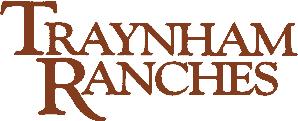
10 minute read
Accessing rangeland research
RANGELAND RESEARCH University of California specialists show passion for grazing
by Lizzeth Mendoza, beef sustainability Intern, University of California Cooperative Extension
Having access to the latest research can be a challenge but more so overwhelming. You search Google phrasing your questions one way but the answers you are looking for do not appear. You rephrase it another way and nothing. You turn to another search engine to look specifically for peer reviewed research but none of it makes sense or better yet, you are clueless on which article to select to find answers. What if I told you that there is an information hub filled with researchers and educators that provide a variety of research in rangeland onto one site? Very organized, friendly and accessible, UC Rangelands has created an information hub to help producers, students, regulators and agriculturists learn more about sustainable livestock grazing management practices.
University of California (UC) specialists across multiple campuses and local UC Cooperative Extension livestock and natural resources advisors are researchers and educators who are passionate about grazing management and are committed to researching agriculture and environmental sustainability. UC Rangelands is the collection of decades of research conducted on working rangelands in California by UC all located in one place. “UC Rangelands is a network of researchers and educators across the University of California and Cooperative Extension focused on the economic, ecological and adaptive livestock grazing enterprises from cattle to sheep and goats, ” states Director Leslie Roche, Ph.D., a UC specialist in rangelands management. “There has been tremendous research conducted through the UC system for decades at the local level and on UC campuses. The website brings together these resources to make them accessible for those with an interest in working rangelands.”
The UC Rangelands website was originally launched in 2015. Each year the site gets over 30,000 visitors. The work of UC Rangelands on topics from water quality to invasive species is of interest to land managements, ranchers and agencies who visit the site from across the globe. 58 California Cattleman September2020
©m.squaredphotography
“We know that the site is highly valued by local, state and federal government agencies as a scientifically credible and solution driven collection of research on rangelands in California,” states Roche. “Co-Director Ken Tate has more than 25 years of water quality research that is shared on the site along with features of our more recent work on predators, mountain meadows and adaptive grazing strategies.”
Ranching and livestock grazing is complex, the benefits of having more than 40 researchers and educators come together with diverse backgrounds and expertise is the ability to answer the multi-disciplinary questions posed by ranchers in the field or agency staff.
“California ranchers have collaborated with UC to conduct practical, field based research on private working ranches and grazed public lands,” states Tracy Schohr, UC Cooperative Extension Livestock and Natural Resources Advisors in Plumas, Sierra and Butte counties. “UC Rangelands hubs currently showcase research projects on irrigated pasture to drought, and public lands grazing with fact sheets, policy briefs and peer reviewed research publications. While the publications section covers a broader scope of published research on working rangelands - over 700 total.”
Drought Research
During the 2012-2015 drought UC Rangelands originally developed a “Drought Hub” to provide tools for livestock producers and land managers. This past year, as limited rainfall hit the state and several headlines regarding the new California drought were printed, the team continued to add new resources to the site. This section includes fact sheets and research papers on management and production, feeds and nutrition and economics. The site also includes a section of resources for government programs. This is an easy place to find current rainfall
Bull & Temale Sale raynham ranches T Bulls and Females Sell the Same Day in 2020! _ SUNDAY, OCTOBER 4 TH • 1 P.M AT THE RANCH FORT KLAMATH, OREGON
THIS DONOR SELLS!

S A V Bismarck 5682 x Twin Valley Precision E161
3-26-19

SAV Resource 1441 x Limestone Darkhorse U322
SIMANGUS 2-16-19


Traynhams Forefront 8521 x WS Stepping Stone B44
PUREBRED SIMMENTAL 1-13-20

W/C Loaded Up x Yardley Beauty Queen B96
2-24-19


SIMANGUS 1-8-19
SAV Resource 1441 x Dameron First Impression W/C Bankroll 811D x Dameron First Class

60 BULLS • 40 FEMALES Angus • Simmental • SimAngus • Hereford Bulls • Bred Females • Cow-Calf Pairs Show Heifers • Genetic Opportunities
BID LIVE ONLINE:


Follow Us on Facebook for Sale Details
3/4 SIMMENTAL 1/4 ANGUS 2-6-20

GEFF County O x TR Everelda Entense D27
THIS PAIR SELLS!
2-26-20

EXAR Wanted 9732B x Bon View New Design 1407 Spring 2020 Heifer Calf at side by S&R Roundtable J328

BRAD & BUCKLEY COX EAGLE POINT, OR • FORT KLAMATH, OR BRAD 541-840-5797 BUCKLEY 541-840-8788 SALE BOOK REQUESTS: info@traynhamranch.com SALE DETAILS: www.traynhamranch.com
...CONTINUED FROM PAGE 58
reports, snow survey information and drought monitor updates. Irrigated Pasture Research
California is well known for its diverse Mediterranean climate bringing an abundance of agriculture products and it’s grassy lands for livestock. With over 500,000 acres of valley, foothill and mountain meadow pastures in the state, irrigated pastures are a critical resource for livestock producers. The Irrigated Pastureland Enhancement Program was created to address drought frequency, severity and extent - as well as growing water demands. The project has a participatory research approach that ensures relevance and credibility of the project, while integrating technical, experimental and social learning pathways. There are currently 35 on-ranch demonstration sites with 23 producers operating on over 4,000 acres across Northern California. Monitoring of the demonstration sites consists of: forage productivity and utilization, forage composition and quality, soil fertility and soil moisture conditions. There is also a management aspect to the project consisting of tracking livestock numbers, irrigation and fertilization.
“In Modoc County there are five sites at three different locations: Likely, Davis Creek, New Pine Creek that are part of the UC Rangelands Irrigated Pasture Research Project,” states Laura Snell, UC Cooperative Extension Livestock and Natural Resources Advisor in Modoc County. At these specific sites we simulated grazing or haying by clipping at various heights and tracking pasture productivity. There are also other variables collected
©m.squaredphotography including long-term weather, soil sampling, stubble height measurements, noxious weeds presence, species richness and forage nutrient analysis.”
Through this project we are identifying management practices that support livestock productivity, water quality, plant diversity, drought resiliency and water efficiency. Water Quality
Water in relation to livestock grazing, has been under public watch for decades. The team at UC Rangelands investigates water quality in rangeland streams that are essential for drinking water and irrigation. There is estimated to be over 40 million acres of rangeland watershed that supply surface drinking water, irrigation, habitat, production, grazing and more. UC Rangelands investigates water quality to determine impacts of best management practices, source verification, riparian health and more that support sustainable livestock grazing on California’s vast landscapes.
In one specific project highlighted in UC Rangelands, 19 streams were analyzed during 2000 and 2001 from October to September. The watershed sizes ranged from 1,000 to 143,000 acres with a dominant land use for range livestock production including grazing, corrals and irrigated pasture. Concentrations were found to be low when comparing to state and federal water quality standards. Although this data relates to phosphate and ammonium levels the data did show that fecal coliform and E. coli indicator bacteria exceeded the recommended levels during rainfall runoff seasons. This is just one of the many studies that looks at grazing in relation to water quality across the state. Public Lands Research
Grazing strategies are analyzed in the UC Rangelands public land meadows and riparian areas in six National Forests with a total of 74 sites. These leases on national forest grazing lands supply forage for over 70,000 head of cattle annually. The Public Lands Research Project was created to assess the effectiveness of grazing strategies used on public lands and riparian areas. These monitoring programs are meant for managers who are wanting to adapt grazing management to site specific conditions while maintaining successful environmental outcomes that concern the public. The preliminary results show longterm meadow health trends are compatible with grazing management. Rustici Endowment
UC Rangeland also showcases the research and extension efforts of UC funded by the “Rustici Endowment.” The Endowment was a generous gift to the UC from the late Russell L. Rustici, a Lake County cattle rancher who was dedicated to preserving rangeland ecosystems. Through his generosity and gifts, faculty positions, research and outreach are supported and a scholarship program administered through the California Farm Bureau Federation is available for undergraduates with an interest in rangeland science and management.
“The vision and leadership of Mr. Rustici to create a

...CONTINUED FROM PAGE 60
program to support research and the next generation of ranchers is unparalleled,” said Ken Tate, Ph.D., Rustici Endowed Chair in Rangeland and Water Quality at the University of California, Davis. “Through his generous donation UC is able to conduct a myriad of research projects of critical importance in the state on animal health, livestock genetics and natural resource topics. Also, it has funded various extension activities including multiple tours on public lands grazing and water quality stewardship on irrigated pasture for regulators to see firsthand the sustainable grazing management practices undertaken by California ranchers.” Visit UC Rangelands
Having access to UC Rangelands and its workshops producers, regulators and others can adopt new and upcoming sustainable management strategies to efficiently manage pastureland that is critical to ranching and provides many ecosystem benefits. Ultimately the UC Rangelands hub is here for YOU. Through rangeland research and education UC Rangelands strives to provide you with fast and accessible resources to not only be more efficient and sustainable but also make better environmental decisions for our future. Recently, the team at UC Rangelands launched a free webinar series “Working Rangelands Wednesday” that showcases research, ranchers and land managers talking about grazing management in California. You can also follow the work of UC Rangelands on Twitter @UCRangelands and on Facebook. For more information, visit rangelands.ucdavis.edu.

MONDANI LIVESTOCK
Teresa Mondani of Mondani Livestock of Ione, is seen checking out the old Doc Scheiber Grazing Allotment in mid-July near Pearl Lake in the El Dorado National Forest. She’s getting spoiled on one of Doug Veerkamp’s best mules.


For more information on Mondani Livestock, e-mail: teresamondani@gmail.com

CALF EQUIPMENT GATES AND PANELS CATTLE GUARDS & MORE!


SQUEEZE CHUTES HEAD GATES CATTLE WORKING SYSTEMS
Since 1938, Powder River has provided the highest quality and most durable products available for the livestock industry. Conlin Supply Co. carries the full line of Powder River’s squeeze chutes, working systems, classic gates and panels which are unsurpassed in quality, functionality and reliability, making them an overall great investment. Stop by either of our locations to see the full line of products...
576 Warnerville Rd., Oakdale, CA •(209) 847-8977 • M-F: 7:30 a.m.-5:30 p.m. • Sat: 8 a.m.-5 p.m. • Sun: 10 a.m.-4 p.m. 717 E. Childs Ave. • Merced, CA • (209) 725-1100 • M-F: 8 a.m.-5:30 p.m. • Sat: 8 a.m.-1 p.m. • WWW.CONLINSUPPLY.COM •









